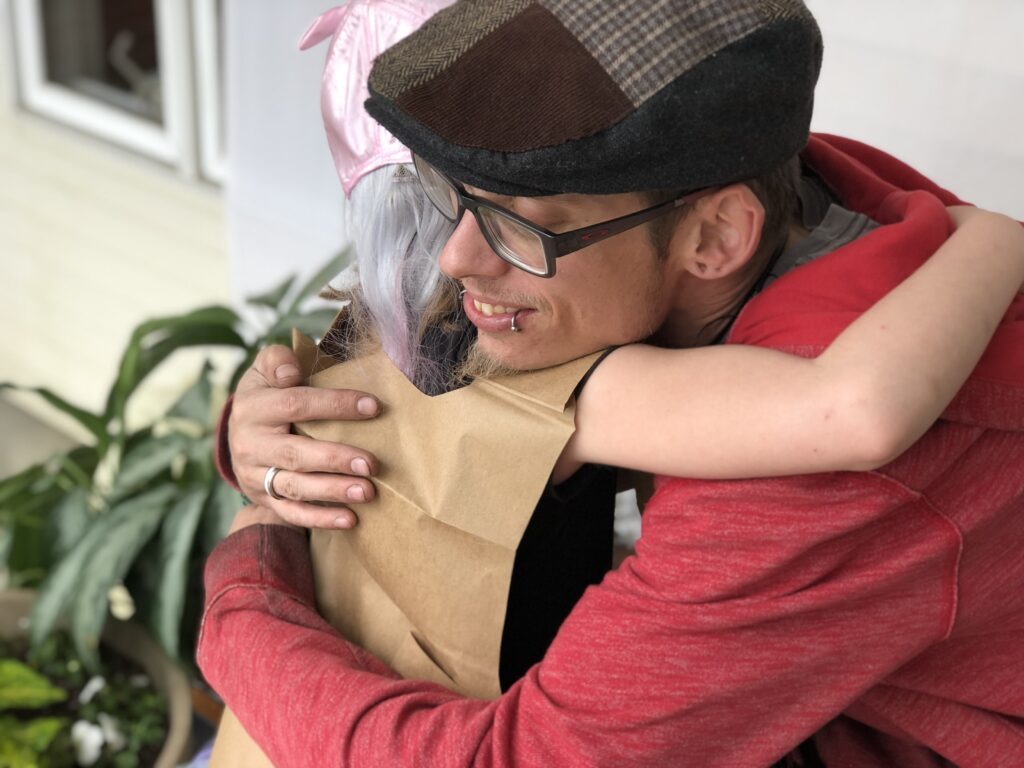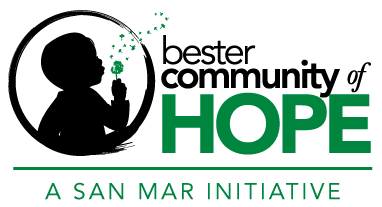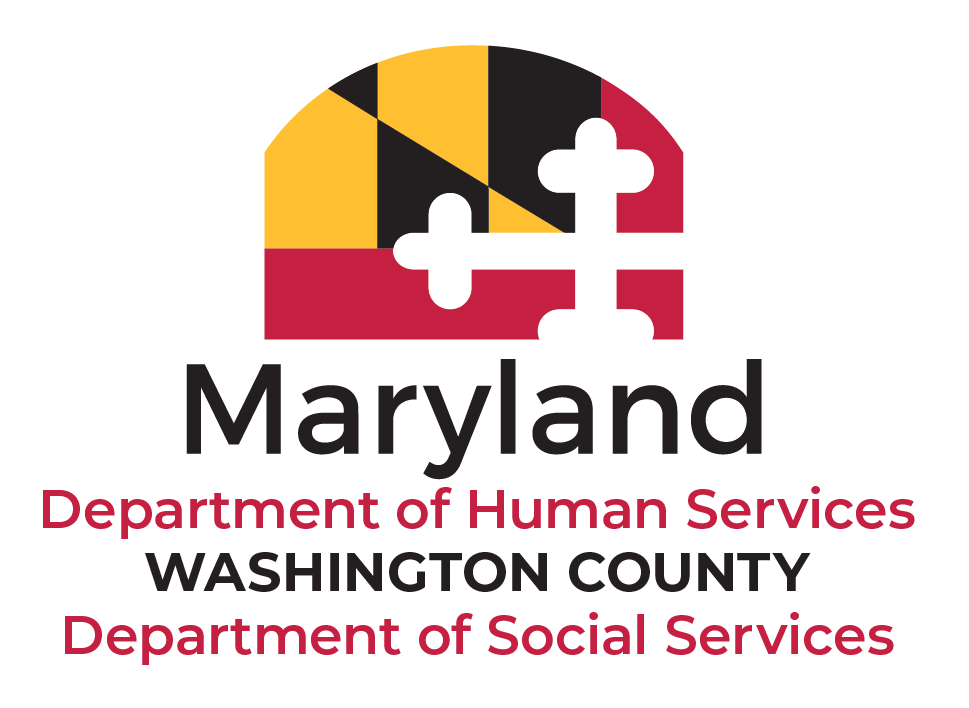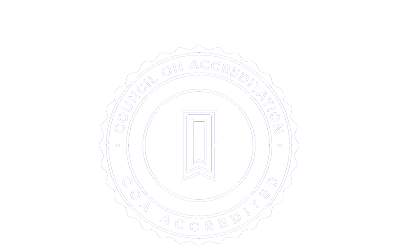“None of us can do it alone, together we are stronger!”
“A blend of in-home services and parent collaboratives that cultivate strong and resilient families.”
Every family wants the best for their children. Children are more likely to thrive when their families have the support they need. Our primary goal is to reduce barriers and increase access to local opportunities and resources through home visiting services to promote family well-being and permanency.
Through our Unconditional Care lens, Bester Community of Hope (BCOH) implements the STRENGTHENING FAMILIES™ Protective Factors Framework in supporting families. The Center for the Study of Social Policy describes this framework as “a research-informed approach to increase family strengths, enhance child development and reduce the likelihood of child abuse and neglect. It is based on engaging families, programs and communities inbuilding five key protective factors:
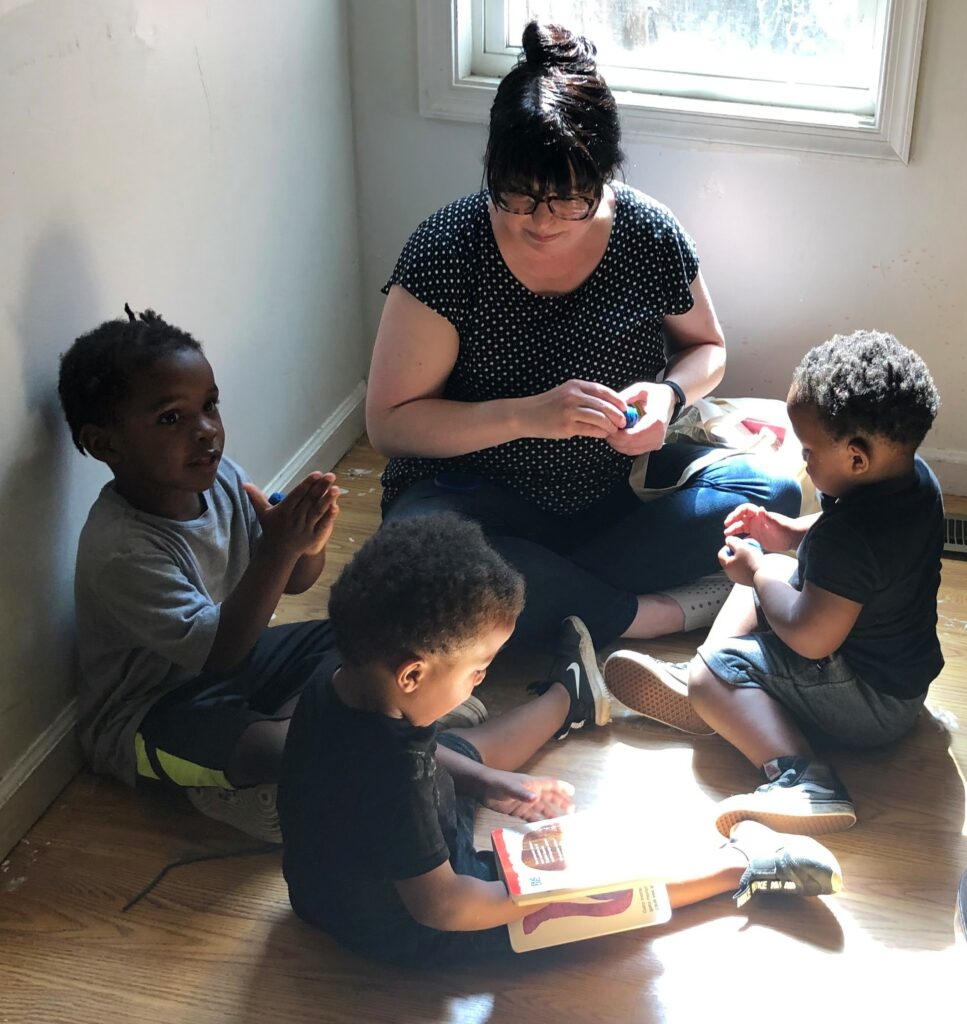 Parental resilience: Managing stress and functioning well when faced with challenges, adversity and trauma.
Parental resilience: Managing stress and functioning well when faced with challenges, adversity and trauma.- Social connections: Positive relationships that provide emotional, informational, instrumental and spiritual support.
- Knowledge of parenting and child development: Understanding child development and parenting strategies that support physical, cognitive, language, social and emotional development.
- Concrete support in times of need: Access to concrete support and services that address a family’s needs and help minimize stress caused by challenges.
- Social and emotional competence of children: Family and child interactions that help children develop the ability to communicate clearly, recognize and regulate their emotions and establish and maintain relationships.
Protective factors are characteristics or strengths of individuals, families, communities or societies that act to mitigate risks and promote positive well-being and healthy development. Most often, we see them as attributes that help families to successfully navigate difficult situations. A protective factors framework is an organized set of strengths-based ideas that are used to guide programs, services, supports and interventions aimed at preventing child maltreatment and promoting healthy outcomes. The Strengthening Families Protective Factors Framework from the Center for the Study of Social Policy distills extensive research in child and family development into a core set of five protective factors that everyone can understand and recognize in their own lives.” (https://cssp.org/our-work/project/strengthening-families/)
In-Home Family Support Services
Family Support Workers (FSW’s) assist South End families in navigating life’s challenges through a family-driven and intentional relational process. Families are the experts of their own family and BCOH values the families voice. Through a trusted partnership, families and FSW’s explore current strengths, resources, and barriers to accessing critical needs.
Some examples of services provided to promote protective factors:
- Academic/ Educational supports
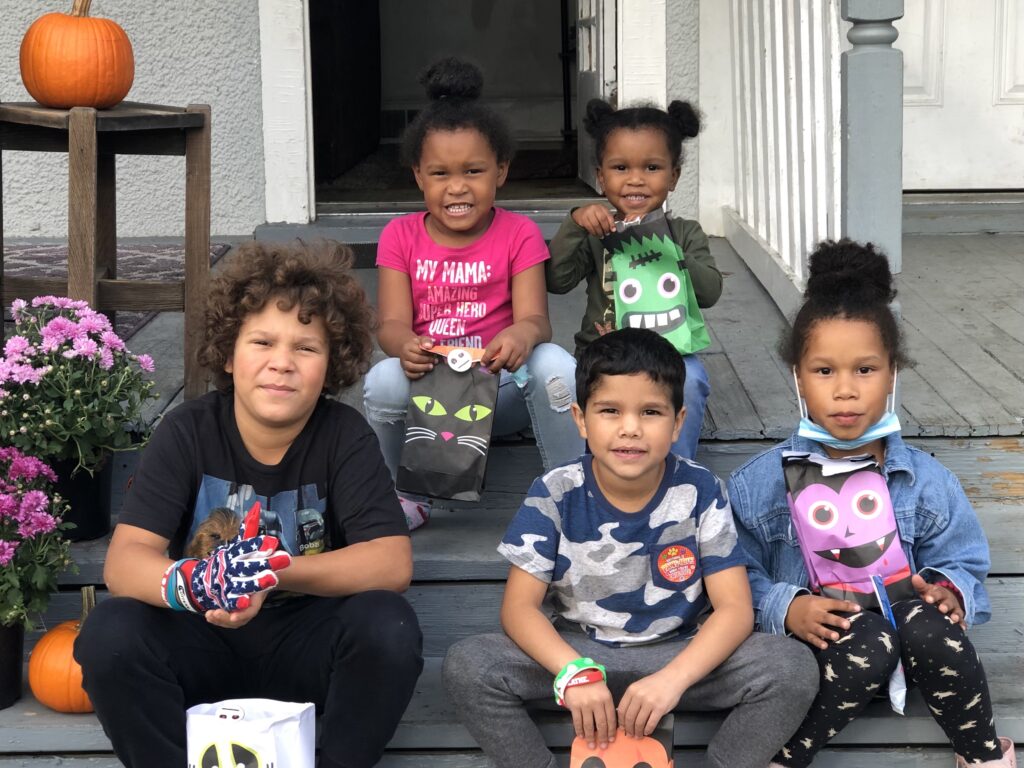
- Navigating safe and affordable housing
- Parenting education; Triple P (Positive Parenting Program)
- Peer support
- Transportation
- Connection to concrete needs (food, clothing, etc.)
- Mental health and substance use disorders; Recovery Coaching
- Financial literacy and future planning
- Crisis support
All services are provided free to families within the Bester Elementary School district. Referrals for service are accepted from Bester Elementary School, Washington County Department of Human Services, houses of faith in the South End and other key partners. South End families may also self referral for services as well. For more information or to make a referral, please contact Teri Conrad, Director of Family Support at 240-513-6370 or email tconrad@besterhope.org.
Support Groups
BCOH offers a variety of support groups offered in-person and virtually throughout the year. Check out our calendar for upcoming opportunities or for more information email us at connect@besterhope.org.
-
Triple P – Positive Parenting Program is one of the most effective evidence-based parenting programs in the world, backed up by more than 35 years of ongoing research. Triple P gives parents simple and practical strategies to help them build strong, healthy relationships, confidently manage their children’s behavior and prevent problems developing. Triple P is used in more 30 countries and has been shown to work across cultures, socio-economic groups and in many different kinds of family structures. In addition to providing individual Triple P sessions, BCOH offers Triple P support groups for parents with children up to 16 years of age. Click HERE for more information about Triple P practices.
-
Parent Cafés/ Dad Cafés – Parent Cafés, created by BE STRONG FAMILIES, are physically and emotionally safe spaces where parents and caregivers talk about the challenges and victories of raising a family. Through individual deep self-reflection and peer-to-peer learning, participants explore their strengths, learn about the Protective Factors, and create strategies from their own wisdom and experiences to help strengthen their families. Click HERE for more information on the Parent Café model.
-
Recovering Together Cafés – Also created by BE STRONG FAMILIES, Recovering Together Cafés are part of ensuring effective, peer support that will assist with sustaining motivation for people in recovery, their families, and with their communities. Based on the truth that we are all recovering from something and that we are all part of each other’s well-being, Recovering Together Cafés assist with sustaining a healthy transformation of the mind, body and spirit. Recovering Together Cafés promote holistic well-being and offer a valuable contribution to the recovery process: catalyzing peer support to sustain motivation.
Parent Advisory Committee (PAC)
As a family driven initiative, BCOH has implemented a formal structure to partner with families to ensure their vision and voice directly impact and drive our service delivery. The PAC is compromised of parents, grandparents or other caregivers from the community who have previously accessed family support services. Members formally meet on a monthly basis and participate on various subcommittees within the agency. The PAC provides critical feedback regarding service provisions, agency practices, and facilitates activities based on need and interest. Additionally, they have established a Men’s Council subcommittee to strategically support fatherhood/ male caregiver initiatives.
The objectives of the committee are:
- Co-create opportunities for parents and caregivers to take on responsibilities within the organization
- Cultivate positive connections and social networks
- Develop skills through engagement in leadership roles
- Increase program sustainability by providing feedback
